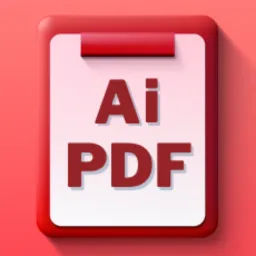
Physics Oracle
I offer in-depth physics explanations, assist with research and academic writing, and solve coding problems.
What does Physics Oracle do? (& its Use Cases)
Physics Oracle enhances your learning and problem-solving in physics.
It offers detailed explanations, research support, and coding assistance tailored to your needs.
For students and learners:
Provides clear, step-by-step solutions to complex physics problems and concepts.
For researchers and academics:
Assists in exploring new research directions and summarizing scientific findings.
For developers and educators:
Offers coding guidance for simulations and interactive learning tools in physics.
How to Use Physics Oracle?
Master physics with Physics Oracle
Welcome to your ultimate guide on how to effectively utilize Physics Oracle, your dedicated AI assistant for mastering physics, aiding in research, developing coding solutions, crafting academic writings, and enhancing interactive learning experiences. This guide is designed to navigate you through the process of leveraging Physics Oracle's capabilities, ensuring you make the most out of this innovative tool.
Getting Started
Identify Your Need: Begin by clearly defining what you need help with. Whether it's understanding a complex physics concept, seeking research support, coding a simulation, writing an academic paper, or creating an educational tool, knowing your objective is key.
Formulate Your Question: Once you've pinpointed your need, craft a clear and concise question or statement. Specificity is crucial for obtaining the most accurate and relevant assistance.
Engaging with Physics Oracle
Physics Problem Solving
- Direct Questions: Pose your physics questions directly. For problem-solving, include all relevant details and specify the concept you're struggling with.
- Follow-Up Questions: Don't hesitate to ask follow-up questions for clarification or deeper understanding. Physics Oracle is designed to adapt and respond to your evolving needs.
Research Assistance
- Specify Your Research Area: Clearly state the topic of your research. The more specific you are, the more targeted the support will be.
- Request Sources: Ask for recent studies, articles, or papers that could support your research. Physics Oracle can guide you to the most relevant and up-to-date information.
Coding Solutions
- Describe Your Project: Give a detailed description of your coding project, including the objective, the programming language you're using, and any particular challenges you're facing.
- Code Snippets: If you're stuck with a piece of code, share the snippet while omitting any identifiable or sensitive information. This helps in providing precise guidance or debugging assistance.
Academic Writing
- Outline Your Paper's Goals: Share the topic, thesis, or hypothesis of your paper, along with any specific requirements or guidelines you need to follow.
- Seek Structured Advice: Ask for help with structuring your arguments, improving your writing style, or citing sources correctly.
Interactive Learning
- Interactive Tools Request: If you're developing or seeking interactive tools for teaching physics, describe the concept and the learning outcome you aim to achieve.
- Engagement Techniques: Inquire about methods to make learning physics more engaging and effective for your target audience.
For Whom is Physics Oracle Built?
Physics Oracle is designed for a wide range of users, including but not limited to students, teachers, researchers, developers, and anyone with a keen interest in physics or related fields. Whether you're preparing for an exam, conducting academic research, coding a physics-based application, writing a paper, or creating educational content, Physics Oracle is here to assist.
Conclusion
Physics Oracle stands as a versatile and powerful tool designed to facilitate learning, exploration, and creation within the realm of physics and beyond. By following this guide, you're well on your way to unlocking its full potential, enhancing your knowledge, and achieving your academic, research, or project goals. Remember, the key to maximizing your use of Physics Oracle lies in clear communication, specificity, and engagement. Embrace this innovative tool, and let your curiosity lead the way to discovery and mastery.
Physics Oracle's Testing Performance
Physics Oracle's Core Features
Expert Physics Explanations
Simplifies complex physics concepts for easy understanding. Offers detailed, step-by-step explanations to bridge knowledge gaps and enhance learning.
Research Assistance
Provides up-to-date scientific sources and research strategies. Helps identify gaps in knowledge, suggesting new directions for inquiry and study.
Mathematical Solutions
Delivers precise mathematical calculations for physics problems. Uses clear, methodical steps to make complex equations accessible and solvable.
Coding Solutions
Offers programming help for physics-based projects. Guides through planning, coding, and debugging, ensuring functional and efficient outcomes.
Academic Writing Aid
Assists in crafting clear, coherent academic papers. Focuses on structure, evidence, and argumentation to elevate the quality of scholarly writing.
FAQs from Physics Oracle
Physics Oracle's Prompt Examples
Physics Problem Solving
Calculate the gravitational force between two masses 5 kg and 10 kg separated by a distance of 2 meters.
Explain the principle behind the working of a transformer and how it steps up voltage.
Derive the equation for the time period of a simple pendulum and discuss the factors affecting it.
Research Support
Find recent studies on quantum entanglement and summarize their findings.
Suggest a methodology for researching the effects of solar flares on satellite communications.
Compile a list of potential materials for high-temperature superconductivity research.
Coding for Physics Simulations
Provide a Python code to simulate projectile motion, including air resistance.
Write a code snippet in JavaScript to visualize wave interference patterns.
Develop a simulation for the double slit experiment using MATLAB.
Academic Writing and Publication
How to structure an academic paper on the topic of dark matter.
Tips for writing a compelling introduction for a physics research paper.
Best practices for citing sources in a physics literature review.
Interactive Learning Assistance
Create a quiz on the laws of thermodynamics with detailed explanations for each answer.
Explain the concept of electric fields through interactive examples.
Design a virtual lab experiment to measure the speed of sound in air.








